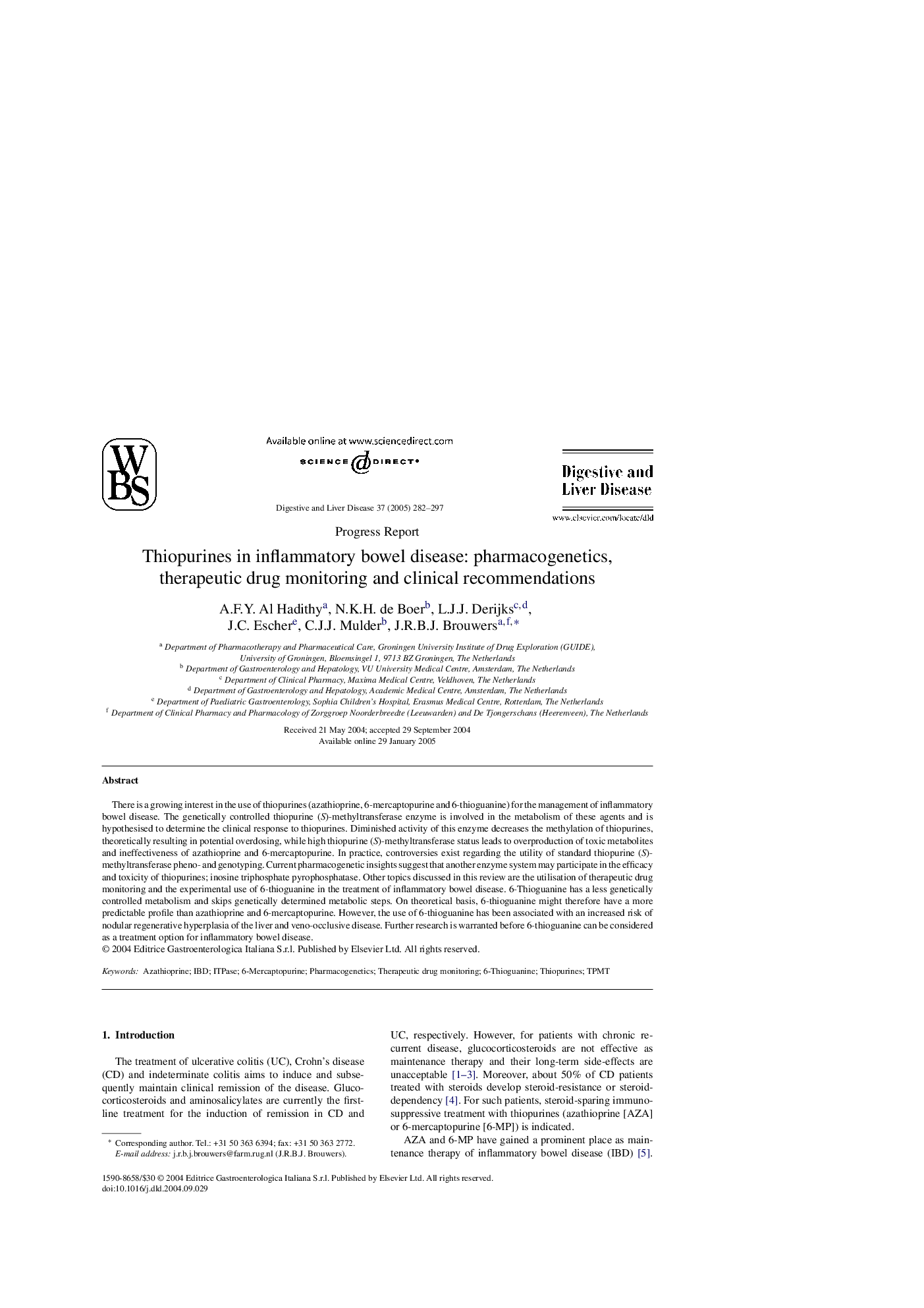| Article ID | Journal | Published Year | Pages | File Type |
|---|---|---|---|---|
| 9238068 | Digestive and Liver Disease | 2005 | 16 Pages |
Abstract
There is a growing interest in the use of thiopurines (azathioprine, 6-mercaptopurine and 6-thioguanine) for the management of inflammatory bowel disease. The genetically controlled thiopurine (S)-methyltransferase enzyme is involved in the metabolism of these agents and is hypothesised to determine the clinical response to thiopurines. Diminished activity of this enzyme decreases the methylation of thiopurines, theoretically resulting in potential overdosing, while high thiopurine (S)-methyltransferase status leads to overproduction of toxic metabolites and ineffectiveness of azathioprine and 6-mercaptopurine. In practice, controversies exist regarding the utility of standard thiopurine (S)-methyltransferase pheno- and genotyping. Current pharmacogenetic insights suggest that another enzyme system may participate in the efficacy and toxicity of thiopurines; inosine triphosphate pyrophosphatase. Other topics discussed in this review are the utilisation of therapeutic drug monitoring and the experimental use of 6-thioguanine in the treatment of inflammatory bowel disease. 6-Thioguanine has a less genetically controlled metabolism and skips genetically determined metabolic steps. On theoretical basis, 6-thioguanine might therefore have a more predictable profile than azathioprine and 6-mercaptopurine. However, the use of 6-thioguanine has been associated with an increased risk of nodular regenerative hyperplasia of the liver and veno-occlusive disease. Further research is warranted before 6-thioguanine can be considered as a treatment option for inflammatory bowel disease.
Keywords
RBCAZATPMTinosine monophosphate dehydrogenaseITPaseHprtNRHMCV6-MercaptopurineIBDQGMPs6-TGIBD6-thioguanineWBC6-thioguanine nucleotidesFDA6-MethylmercaptopurineIC506-MMP6-MMPRnodular regenerative hyperplasia of the liverXanthine oxidaseRed blood cells6-MPDNAazathioprinealdehyde oxidaseinosine triphosphate pyrophosphataseMRICrohn's diseaseInflammatory bowel diseaseMagnetic resonance imagingThiopurinesMean corpuscular volumeFood and Drug AdministrationInhibitory Concentration 50%Pharmacogeneticstherapeutic drug monitoringhypoxanthine phosphoribosyl transferaseinternational unitsInflammatory Bowel Disease QuestionnaireUlcerative colitiswhite blood cell
Related Topics
Health Sciences
Medicine and Dentistry
Endocrinology, Diabetes and Metabolism
Authors
A.F.Y. Al Hadithy, N.K.H. de Boer, L.J.J. Derijks, J.C. Escher, C.J.J. Mulder, J.R.B.J. Brouwers,
